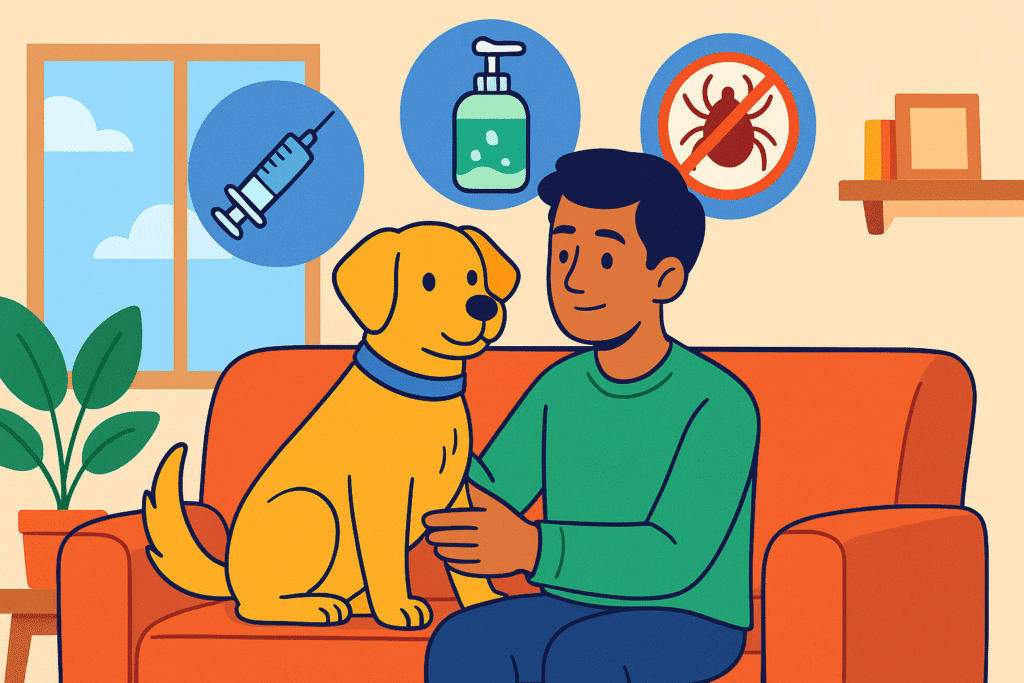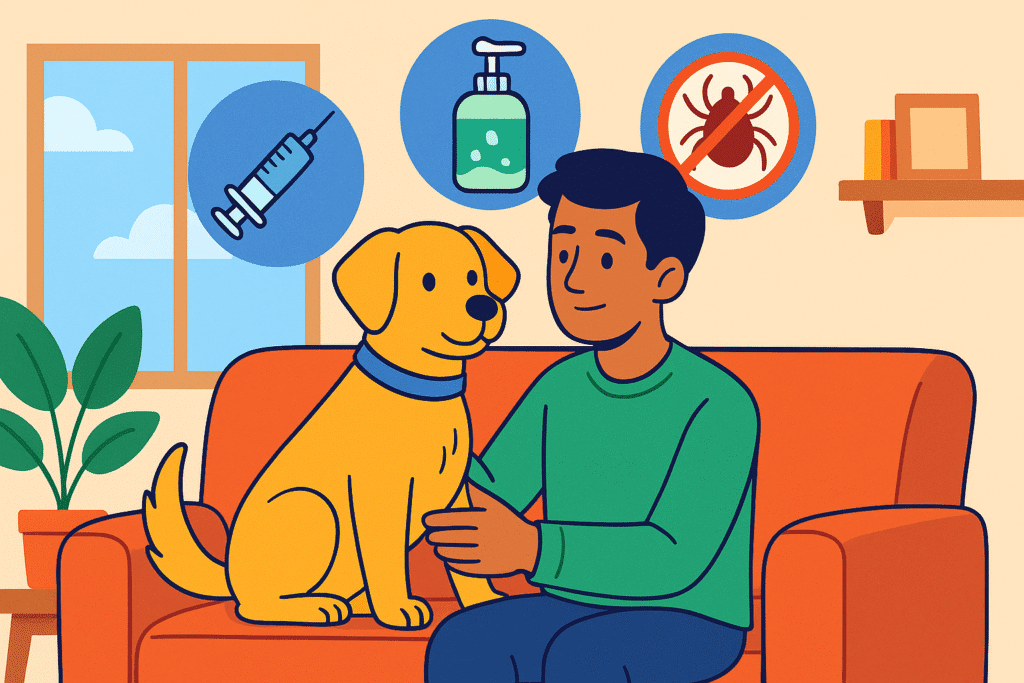

Having a dog is one of life’s greatest joys. Yet few people realize that dogs can transmit certain diseases to humans. These illnesses, known as zoonoses, range from mild infections to life-threatening conditions. Understanding and preventing them is essential for a healthy coexistence between humans and their pets.
🐾 Common Diseases Transmitted by Dogs
Dogs can transmit diseases directly (through saliva, skin, or feces) or indirectly via vectors such as ticks, fleas, or mosquitoes.
1. Rabies
A deadly viral disease affecting the nervous system, transmitted through bites or saliva. Vaccination is the best prevention and remains vital in countries where rabies is still endemic.
2. Leptospirosis
Caused by Leptospira bacteria, transmitted via urine or contaminated water. It can cause fever, liver, and kidney damage.
Keeping your dog vaccinated and avoiding stagnant water helps prevent infection.
3. Lyme Disease
Transmitted by ticks, not directly from the dog itself. The bacteria Borrelia burgdorferi causes fever, rash, and joint pain in humans.
Regular tick control treatments for your dog reduce the risk.
4. Mange and Skin Infections
Sarcoptic mange can pass to humans through skin contact with infected dogs, causing intense itching and rash.
Both humans and pets require medical treatment.
5. Toxocariasis
Caused by Toxocara canis, a roundworm found in dog feces. Humans may ingest microscopic eggs from contaminated soil.
Routine deworming prevents these cases, especially in households with children.
🌬️ Other Health Conditions Linked to Dog Companionship
Living closely with dogs can also trigger allergic or respiratory conditions, such as:
- Asthma or allergic rhinitis from dander, saliva, or hair.
- Contact dermatitis due to hypersensitivity to animal proteins.
Regular cleaning, good ventilation, and keeping dogs out of beds are simple yet effective measures.
🧼 Prevention Tips
- Keep your dog’s vaccines and deworming up to date.
- Maintain good hygiene after handling pets.
- Avoid contact with stray or unvaccinated dogs.
- Schedule regular veterinary checkups.
- Use tick and flea prevention year-round.
💚 Final Thoughts
Dogs are wonderful companions, but responsible pet ownership includes preventing disease transmission. With proper care, your furry friend can stay healthy — and so can you.
